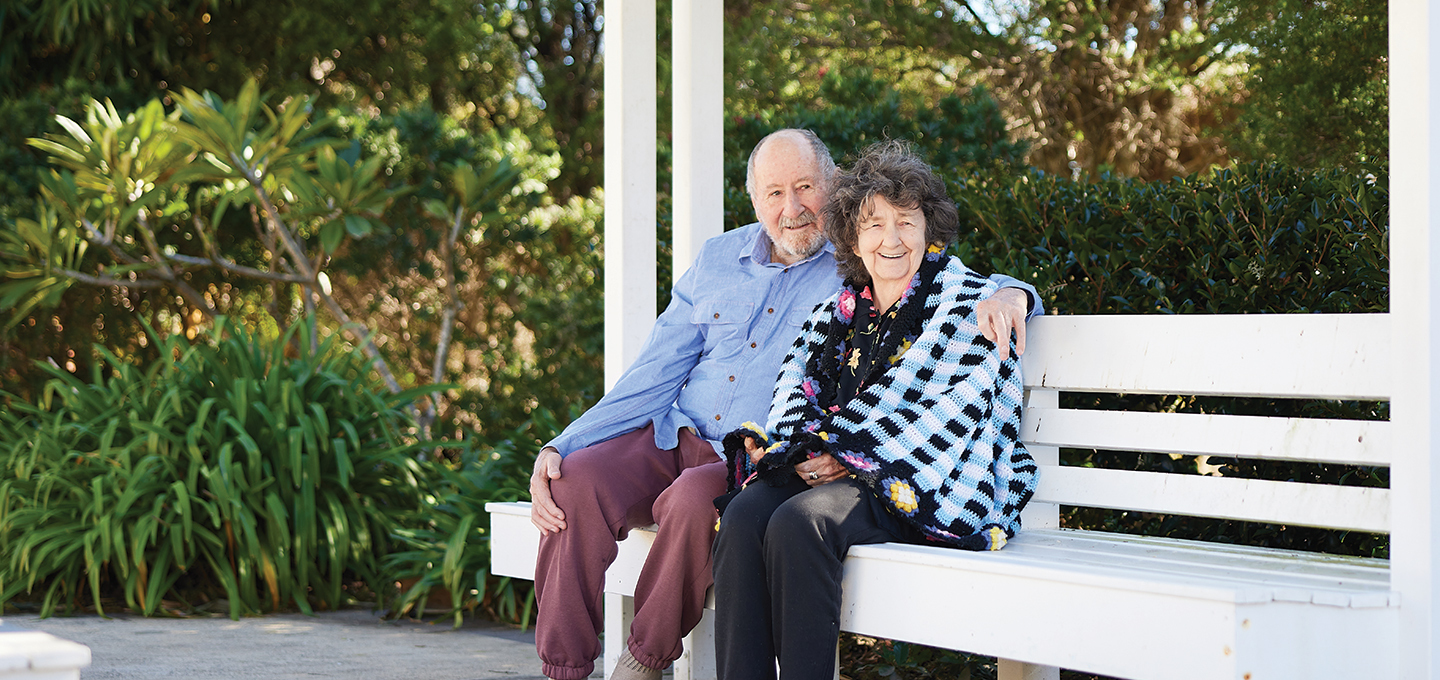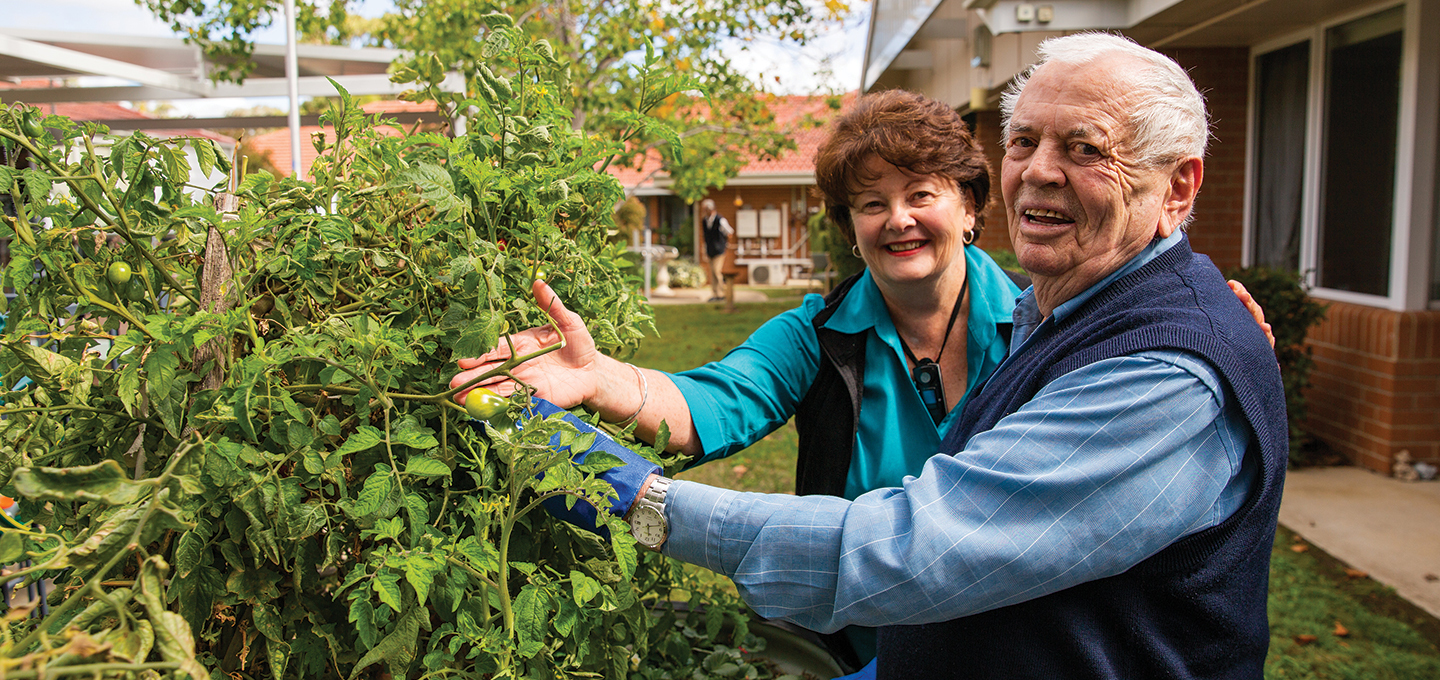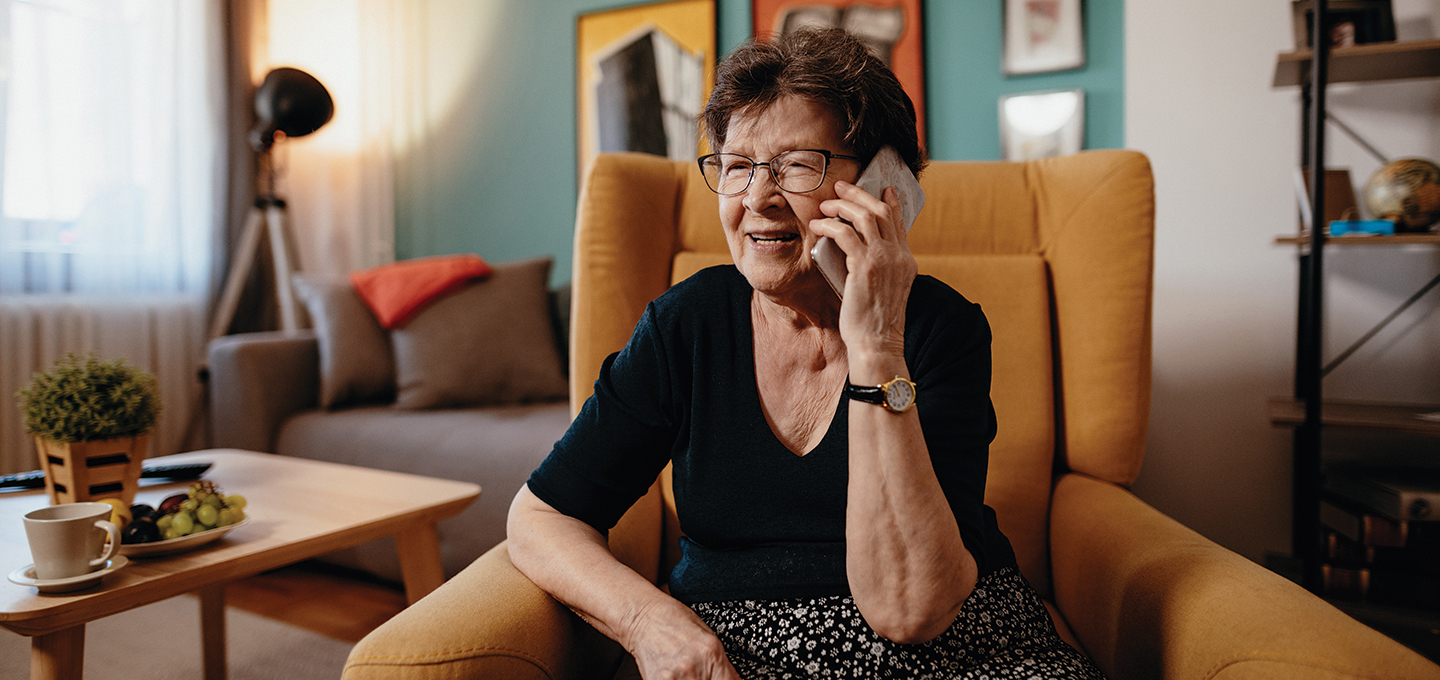When should my loved one move into residential aged care? Seven ways to know it’s time.
If someone you love is showing signs that they cannot look after themselves as well anymore, it might be time to consider if they need residential aged care.
Scroll to Explore

11 September 2023
Stories
| Aged Care Homes
When should my elderly loved one move into an aged care home? Seven ways to know it’s time.
If someone you love is showing signs that they cannot look after themselves as well anymore, it might be time to consider if they need residential aged care.
Considering full-time aged care for your loved one can be a challenging and emotional process. Care homes often carry a negative stereotype, which can affect or delay a family’s decision to move their loved one into residential care.
Despite this though, most care homes offer beautiful, peaceful spaces where older people can receive loving and nurturing care at any time of day. Residents can connect and socialise, be supported in the activities they love doing, and enjoy a wholly positive experience.
But how do you know when it’s time for your loved one to move into a care home? And what is the difference between normal ageing and more concerning symptoms?
We spoke to Sunita and Pru, two senior Aged Care Nurses at BaptistCare, to ask what signs to look out for, and when it might be time to consider a move into residential care.

1. An increase in falls or accidents
“The main thing for families to consider is whether their loved one is safe whilst living in the community,” says Sunita. “If their mobility is reduced, this heightens the risk of frequent accidents and injuries.”
Have you noticed an increase in minor accidents like small trips and falls, regularly burning food, or dropping things? Or perhaps there’s been a spike in more serious incidents, like a painful fall, untreated wounds, or an increase in hospital visits? In which case, it’s worth discussing this as soon as possible with your GP.
At residential care homes, staff are on hand 24/7 to support older people as they move around and get on with their day. Whilst those living at home can sometimes be afraid to go out in case they fall, a care home can offer a rejuvenated sense of confidence, with residents supported and encouraged to keep doing the things they love.
2. Unintentional weight loss
You might have noticed that your family member has lost weight and become significantly frailer. This isn’t always a normal sign of ageing and could be cause for concern.
“Skipping meals is surprisingly common and happens for a number of reasons,” says senior Aged Care Nurse, Pru. “It could be because the person is experiencing memory loss, and believes they’ve already eaten.
“Or the person might not be physically able to get up and prepare themselves something to eat – particularly if it’s painful to move around.
“We also see older people who’ve recently suffered a bereavement, or who are experiencing loneliness and/or depression, and this can result in loss of appetite.”
Whatever the reason, a sudden loss of weight is a common, early sign that your loved one may need some additional support.
“The change we often see in new care home residents is incredible,” adds Pru. “Within a few weeks of moving in, they put on weight, their skin becomes healthier, and they are often thinking more sharply too. It can make a real difference to their overall wellbeing.”
3. An unkept home
Even though your loved one might have once kept their home spic and span, perhaps these days it does not seem quite as clean as it once was.
It might be that their garden has become overgrown, or there are piles of rubbish starting to build. Is your family member regularly replenishing their fresh food supplies?
“Many families tell us that one of their earliest realisations their loved one needed more support was that the food in their fridge was regularly left to go off,” says Sunita.
Families sometimes notice hoarding tendencies too - which are common in older age. This can manifest in a noticeable build-up of clutter around the house (making some spaces completely unusable), and a great sense of distress at the idea of throwing anything out.

4. Reduced hygiene practices
Unfortunately, this unintentional neglect might also extend to their own hygiene and self-care. If they have reduced mobility or cognitive impairment, then everyday tasks like washing, using the toilet, or tidying their hair could also be a challenge.
“People can also fall out of step with their medication routine which causes its own problems,” says Pru.
“We often hear of people writing sticky notes to themselves so that they can remember if they’ve showered or eaten – which is a clear sign that additional support is needed.”
5. Carer's stress
Carer’s stress is very real, and often a catalyst for considering residential aged care. If your loved one already requires ongoing support from a family member, this can cause extreme exhaustion for the caregiver - particularly if they too are elderly.
Other aged care services such as in-home care are a wonderful resource to tap into, allowing your loved one to receive care at home and stay in familiar surroundings for as long as possible. There are also options for temporary respite care, during the day or overnight – and these offer engaging, stimulating activities for your loved one whilst you take some time out to recuperate.
But if your loved one needs round-the-clock care, there will still be long stretches of time without proper support, and this puts additional pressure on their carer.
“Caregivers often talk to us about the physical and emotional strain of providing 24/7 care,” says Sunita. “Their loved one might have sleep disturbances or suffer from incontinence which worsens the caregiver’s exhaustion. If dementia is present, their loved one’s general behaviours may become increasingly difficult to manage.”
6. Memory loss and confusion
The early signs of dementia are often mistaken as a normal part of the ageing process. In fact, dementia is much more than forgetfulness and can present as any significant changes in thinking, behaviours, or the ability to do everyday activities.
“Some key signs to look out for in your loved one are confusion about where they are – have they recently got lost somewhere they are usually familiar with?’ Says Pru. ‘They might become confused about the time of day or use unusual words to describe commonplace things.’
“Are they putting objects in the wrong place - like a hairbrush in the fridge?”
And whilst a person’s short-term memory reduces, their long-term memories begin to take centre stage. They might believe their adult children are still young, for example, or forget that people close to them have passed away.
“It’s important to note,” says Sunita, “That this behaviour doesn’t happen constantly – people have good days and bad days. But if the incidents are happening more and more, it’s worth checking in with your GP.”
7. Your loved one seems withdrawn
The prevalence of depression in older people in Australia is significant, affecting between 10 and 15 per cent of the retired population.1 An additional 10 per cent are thought to suffer from anxiety.2
Older people may experience ongoing isolation, and frequent bereavement as friends, siblings, or even their partner pass away. All of this takes a heavy toll on well-being, and they might begin to feel like life isn’t worth living.
Has your loved one stopped going out as much? Are they still doing things they love? Depression commonly affects sleep routines and appetite too, which further exacerbates feelings of low mood and listlessness.
The good news is that help is available, and regardless of their age, your loved one can recover.
For some, residential aged care can offer a new lease of life. Residents have the opportunity for socialisation and connection, with a wonderful array of leisure activities that bring joy and stimulation.

How to catch the warning signs early
Whilst residential care offers a safe, peaceful, and nurturing environment, most people prefer to stay in the comfort of their own home for as long as they can. Pru and Sunita recommend a few proactive ways that families can support their loved ones to do this:
- Book regular appointments with the GP
Pru says, “It’s important you check in frequently to discuss any concerns you may have. The GP can conduct a cognitive test, as well as provide referrals to a Geriatrician if required.
“They might also chat with you and your family about residential aged care if they believe your loved one would benefit from the move.”
- Make time for connection
“If you’re worried your loved one is experiencing isolation and loneliness,” says Sunita, “make time to give them a ring each day or even better, pay them a visit. Look into home care services and local respite services. Encourage them to try and get out once each day.”
- Understand Urinary Tract Infections (UTIs) in the elderly
UTIs are one of the most common infections in older adults and can present differently from the classic symptoms of burning pain and frequent urination. Instead, the infection in seniors often causes confusion and delirium.
“If one of our care home residents is acting differently, the first thing we check for is a UTI,” says Sunita. “It’s important that families understand the prevalence of this infection in older people, and how it presents, so they can treat it effectively.”
Find a residential aged care home near you
If you’re curious about the lifestyle on offer in a residential care home and whether it will suit your loved one, why not have an initial chat with one of our friendly, experienced staff members to find out more?
We’d be happy to talk with you about your individual care needs, show you around your local care home, and tell you about our day-to-day activities for residents, so you can decide whether it’s right for your family now – or in the future.
Use our simple online search tool to explore BaptistCare Aged Care Home locations across New South Wales and the ACT.
Click the link below to learn more about BaptistCare's
Residential Aged Care | MyTeam | Understanding Aged Care | Financial Guide | Find a centre
Make an Enquiry
If you would like to know more, please contact us on 1300 275 227 or complete the enquiry form and one of our customer representatives will be in touch.